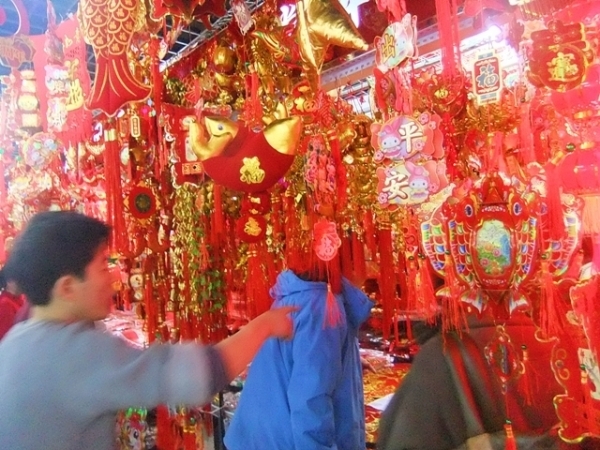By Darwin Wally T. Wee, a freelance journalist from the Philippines on exchange with the Economic Observer
 A week after the Chinese New Year celebration, the euphoric sprit still hangs in the air just like the smoke from the seemingly relentless fireworks lighting.
A week after the Chinese New Year celebration, the euphoric sprit still hangs in the air just like the smoke from the seemingly relentless fireworks lighting.
Well, technically is it still spring festival, which runs for more than two weeks until the arrival of the lantern festival that marks the end of the Lunar New Year celebration.
Being in Beijing for the first time during the holiday period, witnessing this ancient tradition gives me the whole understanding and the confirmation of the colorful and vibrant festivities.
My memory of Chinese New Year celebration back home in the Philippines is quite vague and limited to activities at the Chinese school that I attended during my kindergarten year. All that I remember though is eating sticky rice cake or tikoy, and the graceful lion and dragon dances.
Three decades ago, Chinese celebrations were only confined within the walls of the small Chinese communities. However, things have changed. Gradually, perhaps due to the rising economic power of the Filipino Chinese, the celebration has become one of the sought-after festivities in the Philippines.
Just like traditional Chinese, Filipinos are also superstitious. Curious about what animal years can bring to them. Buddha temples that are usually quite throughout the year have now became major attractions. Even non-Buddhists burn joss sticks.
Restaurants, malls, and hotels offer wide varieties of discounted items, and exotic oriental foods that are only available during the Chinese New Year celebrations. Television programs featuring Filipino showbiz stars singing and dancing to Chinese music have become a traditional event. There were even countdown parties in major parks in Manila with expensive firework displays.
To usher in the dragon year and mark Filipino Chinese’s contributions to the local economy, the Philippines government even declared a national holiday to observe this year’s Chinese New Year.
Back in Beijing, my expectations did not fail me. The streets were busy, people were buying goods inside every mall as if it was the end of the world.
The lavishness of the spring festival is like combining the Christmas and Gregorian New Year celebrations into one.
But, at the end of the day, it’s all about family reunions. Migrant workers, who have been working all year round, can spend quality time with their families. Even a few Chinese prisoners with less than two years left of their sentences were allowed out for a five-day holiday in their hometown.
